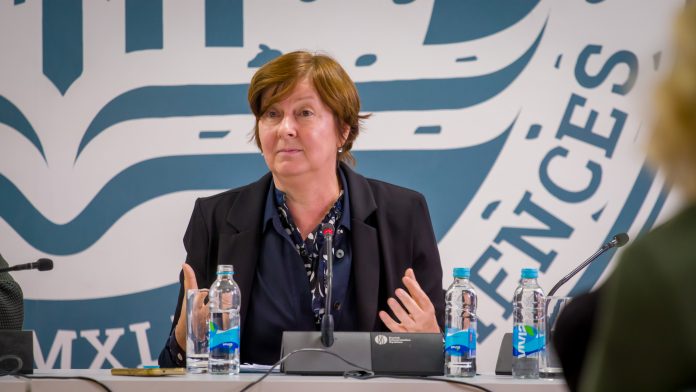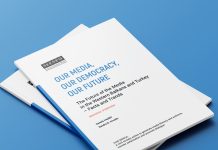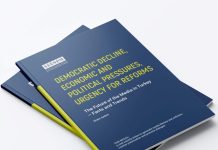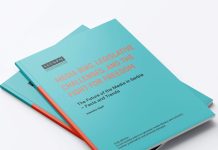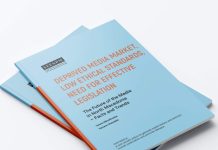How media freedom is eroded—and defended!
By: Brankica Petković
I recently directed a SEENPM research on the Future of Media in the Western Balkans and Turkey as well as the Slovenian part of the European research project on media and democracy, MeDeMAP. The projects gave me insights confirming that media freedom and freedom of expression remain deeply contested, fragile, and under pressure, not only in so-called “fragile democracies” but increasingly everywhere.
What we are seeing is not just pressure on journalism, but a structural erosion of the conditions that make freedom of expression possible. The danger is not just suppression; it is substitution. Illiberal regimes no longer censor. They flood the public space with noise, hate narratives, organised lying, co-opted journalism, and fake pluralism.
One striking insight from the research on the future of the media in the Western Balkans and Turkey is the paradoxical growth of the number of media outlets set against a sharp decline in the number of journalism students and the overall shrinking of the journalistic profession. This mismatch suggests a media landscape growing in volume but not in quality or sustainability, often characterised by political and economic capture. In parallel, MeDeMAP’s citizen engagement research highlights widespread feelings of disconnection and distrust in the media, reflecting a global crisis of democratic legitimacy.
Are we losing the battle?
I would say, though, the battle is far from lost, but it is certainly precarious. We see evidence of deep erosion: shrinking spaces for free expression and media freedom; increasing polarisation; spread of disinformation; economic precarity and growing attacks on journalists (including Israel’s targeted strikes on newsrooms in Gaza and Yemen in recent months). Yet, we also see signs of resilience: active citizens, grassroots movements, and pockets of independent journalism striving to maintain democratic dialogue. (For example, later this month, more than 40 independent newsrooms from 20 European countries will gather in Prague for a Media Innovation Summit organised by Transitions.) The student uprising in Serbia and deliberations at citizens’ parliaments across MeDeMAP’s EU countries underscore that the demand for media freedom and democracy remains very much alive.
Democracy backsliding
The situation in the US and other “established” democracies has a profound influence worldwide. The weakening of norms around media freedom in old democracies emboldens authoritarian tactics elsewhere, with governments increasingly weaponizing media markets through, among other things, ownership concentration and political interference. The Western Balkans and Turkey are particularly vulnerable to this “democracy backsliding,” which is complicated further by the withdrawal of critical foreign donors and the closure of outlets like Al Jazeera Balkans, developments with devastating ripple effects on independent media’s viability and journalists’ jobs. We should reflect and learn from this situation to develop models for building and sustaining independent media infrastructure not entirely dependent on foreign aid, but more rooted in engaging relations with own communities and citizens.
Europe’s role?
Europe must lead the effort for reclaiming democratic media systems. But it is important to resist viewing Europe or any other region as a flawless model. Challenges exist everywhere, and democratic media ecosystems are global public goods that require shared responsibility and mutual learning. European institutions have legal frameworks, tools, and obligations to support media pluralism, strengthen the independence of public service media, as well as regulate the big tech platforms, but these must be coupled with deep engagement with local contexts and genuine partnerships that support and amplify local democratic voices across Europe and in other regions.
Points of resilience
Who safeguards democracy today? The list isn’t short: independent institutions guarding the rule of law; journalists risking their own security and careers; civil society activists mobilising awareness; educators; independent media platforms and innovators; and increasingly, citizens themselves— through deliberative forums, protest movements, and demand for transparency. Our MeDeMAP research shows that citizen participation can rebuild trust and accountability, but it requires inclusive and ongoing engagement from the media and journalists.
Holding the line for media freedom takes a shared effort. What we urgently need are joined-up strategies to rebuild trust, to invest in media literacy and public interest media, to defend editorial independence, and above all, to create spaces where citizens are not just media consumers, but co-creators of a democratic culture. Holding the line means making it broader, more inclusive, and resilient.
Brankica Petković is a researcher with the Peace Institute, a SEENPM member. She has devised and coordinated a number of SEENPM media research projects in the past two decades. The article is an edited version of the contribution the author made at the Our Media conference held in Sarajevo on 2 and 3 October.

The regional program “Our Media: A civil society action to generate media literacy and activism, counter polarisation and promote dialogue” is implemented with the financial support of the European Union by partner organizations SEENPM, Albanian Media Institute, Mediacentar Sarajevo, Press Council of Kosovo, Montenegrin Media Institute, Macedonian Institute for Media, Novi Sad School of Journalism, Peace Institute and Bianet.
This article was produced with the financial support of the European Union. Its contents are the sole responsibility SEENPM and do not necessarily reflect the views of the European Union.
Co-funded by:






